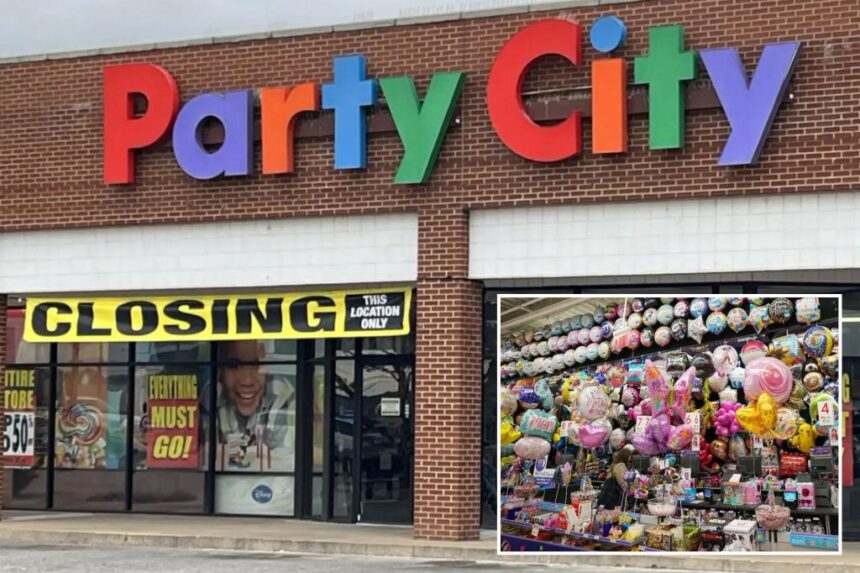Party City, a popular party supply and craft retailer, is facing financial troubles once again as it plans to file for its second bankruptcy in nearly two years. The company, which operates 850 locations across the US, is reportedly behind on rent in some of its stores.
Founded by Steve Mandell in 1986 in New Jersey, Party City first filed for bankruptcy in January 2023 with approximately $1.8 billion in debt. After closing more than 60 stores and reducing its debt by about $1 billion, the company emerged from Chapter 11 protection in September.
However, Party City has been struggling to compete with powerhouse retailers like Walmart and Target, as well as occasion-based pop-up stores such as Spirit Halloween. The effects of the COVID-19 pandemic, a helium shortage (which the chain relied on for its party balloons), and slowing consumer demand have further impacted its sales figures.
Before the pandemic, Party City was experiencing successful expansion, with sales reaching $2.35 billion in 2019. However, the company’s downfall has been attributed to a lack of bargains and variety in its stores, as well as a supply deal with a manufacturer owned by private equity executives.
Private equity firms Berkshire Partners and Weston Presidio acquired Party City in 2005, leading to changes in the company’s pricing and product variety. Mandell, the founder, has criticized the new owners for eliminating the discount and variety that made Party City unique.
Despite attempts to innovate, Party City’s market position and profit margins have been impacted by the company’s financial decisions. Mandell highlighted the importance of offering discounts to remain competitive in the market, especially during key periods like Halloween.
As Party City faces its second bankruptcy filing, the future of the company remains uncertain. The retailer will need to address its financial challenges and adapt to changing consumer preferences to survive in the competitive retail landscape.







